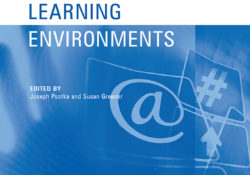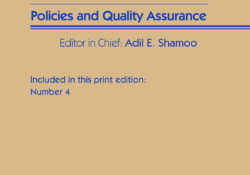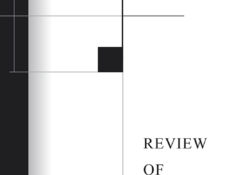tandfonline.com har udgivet en rapport under søgningen „Teacher Education Mathematics‟: ABSTRACT ABSTRACT As the global neo-liberal reform movement in education continues to evolve, so does the simultaneous transfiguration of the profile and status of primary school teachers in England. Reform continues to delineate the aims and purpose of primary education in increasingly essentialist terms. This paper explores English primary school teachers’ perceptions and experiences of teaching, and of being a teacher, in a period of considerable change. Extending the existing research literature about primary school teachers, it explores the progressively strategic nature of policy enactment and the tactics employed by teachers to manage conflicting demands. The paper draws upon rich qualitative data from two sets of interviews with 22 primary teachers employed in the South-East of England. Thematic analysis facilitated… Continue Reading →
Like this:
Like Loading...
tandfonline.com har udgivet en rapport under søgningen „Teacher Education Mathematics‟: Link til kilde
Like this:
Like Loading...
tandfonline.com har udgivet en rapport under søgningen „Teacher Education Mathematics‟: Good friend or good student? An interview study of perceived conflicts between personal and academic integrity among students in three European countries Link til kilde
Like this:
Like Loading...
eric.ed.gov har udgivet: For the past five years, Vermont has been developing an innovative statewide assessment system in which portfolios of student work in mathematics and writing are a key element. The use of mathematics portfolios, particularly in elementary school, is a novel aspect of the assessment system. This study examines the elementary school mathematics portfolio assessment and its instructional impact by exploring the conceptions of problem solving, the knowledge of problem-solving strategies, the evaluation of problem-solving tasks, and the instructional practices of 20 fourth-grade teachers. Teachers indicated that the portfolio assessment program has enhanced their understanding of mathematical problem solving and broadened their instructional practices, but that they have encountered difficulty in understanding certain components of the reform and making the relevant changes. Teachers did not share a common… Continue Reading →
Like this:
Like Loading...
tandfonline.com har udgivet en rapport under søgningen „Teacher Education Mathematics‟: ABSTRACT ABSTRACT A challenge facing the Arctic region is the disengagement of both education and work among its youth. Only by supporting young people who are struggling with mental and physical health challenges can we begin to address this societal challenge. Education, mental health and social inclusion are prominent factors for future employment, income and independent living for young people. The aim of this study was to describe and understand the experiences of good conditions for health and learning in schools in the Arctic region. The 5-D appreciative inquiry method was used to explore 47 students’ and professionals’ experiences and future visions of their school. A phenomenological analysis resulted in three themes: “Standing as one”, “Having an apple a day”,… Continue Reading →
Like this:
Like Loading...
eric.ed.gov har udgivet: The public and academic debate about mathematics education has been intensified during the last decade. In relation to this it is important to investigate what ideas concerning mathematics education that are expressed by teachers and students. The aim of this article is to study how teachers and students in primary school talk about the math book and to emphasize, discuss and problematize emerging discourses. The article is part of a larger project about mathematical education. Data consists of group conversations with 120 students and 8 teachers in two elementary schools in Sweden. The math project was supported by the National Agency for Education 2010-2012. All together 17 hours of video and audio documentation were produced. The theoretical framework is built on poststructuralist and social constructionist theory and… Continue Reading →
Like this:
Like Loading...
tandfonline.com har udgivet en rapport under søgningen „Teacher Education Mathematics‟: Abstract Abstract (Expected) adverse effects of the ‘ICT Revolution’ on work and opportunities for individuals to use and develop their capacities give a new impetus to the debate on the societal implications of technology and raise questions regarding the ‘responsibility’ of research and innovation (RRI) and the possibility of achieving ‘inclusive and sustainable society’. However, missing in this debate is an examination of a possible conflict between the quest for ‘inclusive and sustainable society’ and conventional economic principles guiding capital allocation (including the funding of research and innovation). We propose that such conflict can be resolved by re-examining the nature and purpose of capital, and by recognising mainstream economics’ utilitarian foundations as an unduly restrictive subset of a wider Aristotelian… Continue Reading →
Like this:
Like Loading...

tandfonline.com har udgivet en rapport under søgningen „Teacher Education Mathematics‟: Abstract Abstract The statistical problem-solving process is key to the statistics curriculum at the school level, post-secondary, and in statistical practice. The process has four main components: formulate questions, collect data, analyze data, and interpret results. The Pre-K-12 Guidelines for Assessment and Instruction in Statistics Education (GAISE) emphasizes the importance of distinguishing between a question that anticipates a deterministic answer and a question that anticipates an answer based on data that will vary, referred to as a statistical question. This article expands upon the Pre-K-12 GAISE distinction of a statistical question by addressing and identifying the different types of statistical questions used across the four components of the statistical problem-solving process and the importance of interrogating these different statistical question… Continue Reading →
Like this:
Like Loading...
eric.ed.gov har udgivet: Current research in mathematics education places emphasis on the analysis of men and women’s accounts about their life trajectories and choices for studying, working and developing a career that involves the learning and teaching of mathematics. Within this realm, the present study aims to highlight how mathematics, gender and subjectivity become interwoven by focusing the analysis on a single case study, that of Irene–a teacher in her early 40s. Based on how she articulates hegemonic discourses and narrates her relation to mathematics from the time she was a schoolgirl up till her recent work as teacher and her endeavours as participant in a professional development teacher training course, we argue how „mathematics‟ becomes a mythical object for her subjectification. Irene as a female subject appropriates through her… Continue Reading →
Like this:
Like Loading...
tandfonline.com har udgivet en rapport under søgningen „Teacher Education Mathematics‟: ABSTRACT ABSTRACT Scientific research of all kinds should be guided by statistical thinking: in the design and conduct of the study, in the disciplined exploration and enlightened display of the data, and to avoid statistical pitfalls in the interpretation of the results. However, formal, probability-based statistical inference should play no role in most scientific research, which is inherently exploratory, requiring flexible methods of analysis that inherently risk overfitting. The nature of exploratory work is that data are used to help guide model choice, and under these circumstances, uncertainty cannot be precisely quantified, because of the inevitable model selection bias that results. To be valid, statistical inference should be restricted to situations where the study design and analysis plan are specified… Continue Reading →
Like this:
Like Loading...






